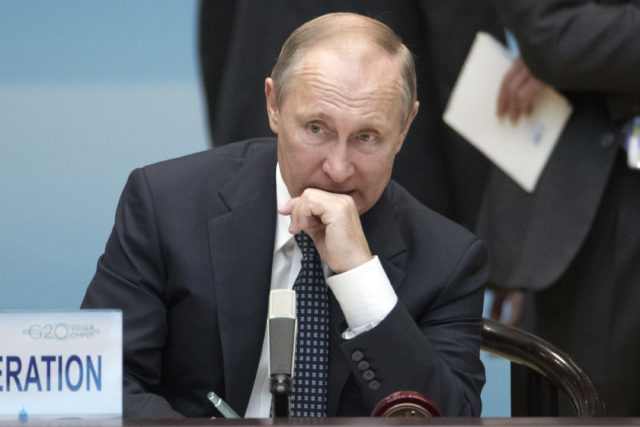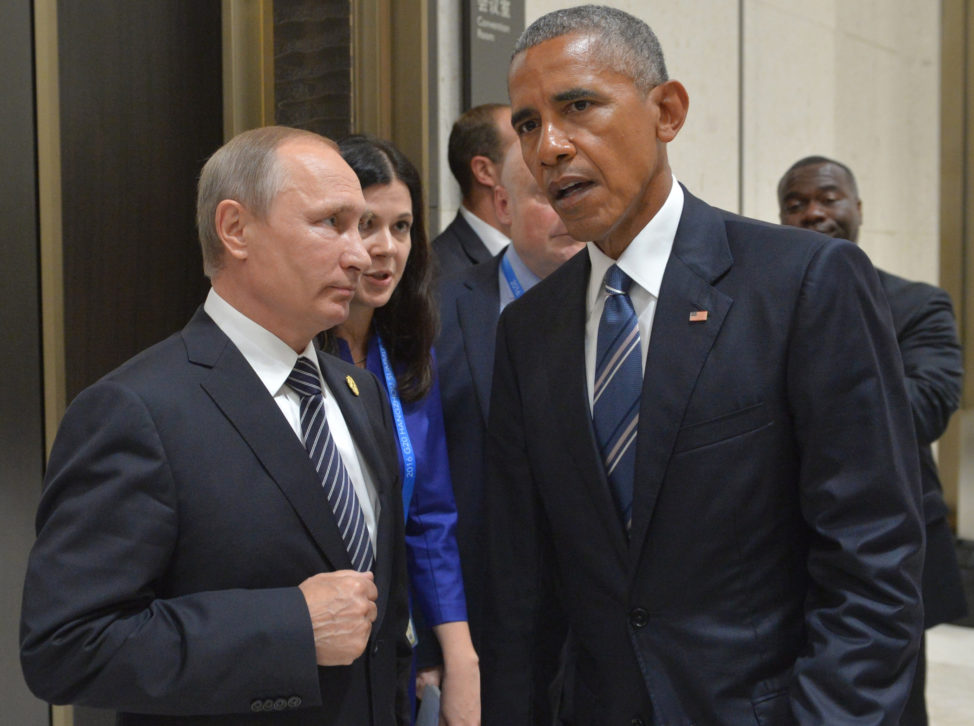Defense Secretary Ash Carter warned Russia against meddling with the “democratic process” in the U.S. and other Western nations.

Russian President Vladimir Putin sits before the start of the opening ceremony of the G-20 Summit in Hangzhou, China, Sept. 4, 2016. (AP))
Carter’s warning comes on the heels of a Washington Post report that U.S. intelligence and law enforcement agencies are looking into what Russia might be doing to interfere with the American election.
The F.B.I. is already looking into whether Russians were behind the computer hack of Democratic National Committee computers. Intelligence agencies know Russian hackers tried to get into those computers last year. Russian president Vladimir Putin denied the accusations, but said the WikiLeaks revelations of the DNC documents was a public service.
Democratic nominee Hillary Clinton is making this a campaign issue, trying to link her Republican foe, Donald Trump, to Russia and Putin.
How much of an issue is this? How can Russia manipulate the election?
Why Russia is Discrediting American Democracy?
Paul Pillar – The National Interest
[T]rust in American democracy—and the worthiness of that democracy in receiving such trust—is an important asset for the United States, and one that is relevant to international competition with Russia. Trustworthy democracy represents an advantage over Putin’s Russia…
Trust in one’s own political system is a key ingredient in maintaining necessary domestic support for overseas endeavors.
That gets to another apparent Russian calculation: that this American asset is weakening and is vulnerable to being weakened further.
Sure, the U.S. and Russia Often Meddle in Foreign Elections. Does it Matter?
Dov H. Levin – The Washington Post
In October 1940, the Nazis leaked a captured Polish government document, hoping to expose Franklin Roosevelt as a “criminal hypocrite” and “warmonger.” The German embassy in Washington gave a U.S. newspaper a bribe to publish the document. Eight years later, the Soviets intervened against Harry Truman, and in 1984, they intervened again, this time against Ronald Reagan’s reelection bid….
The United States has engaged in a few dirty tricks as well. In the 1958 Japanese election, the United States gave the Liberal-Democratic Party damaging political intelligence on its main rival, the Socialists. The CIA acquired it from paid informants within the Socialist Party….
My research found that partisan electoral interventions usually do influence elections, increasing the vote of the preferred side 3 percent on average.

Russian President Vladimir Putin, left, listens to U.S. President Barack Obama in Hangzhou, China Sept. 5, 2016. (AP)
Putin Doesn’t Get American Politics
Leonid Bershidsky – Bloomberg View
Putin’s claim that he’s not up to speed on Washington machinations may be an old intelligence officer’s trick meant to prove to his audience that he had nothing to do with the DNC hack and that it all happened inside the beltway. Putin is known to use such tactics when he sees his interlocutor as an adversary….
The admission, however, may say something about Putin himself and Russian policy vis-a-vis the West. Putin may well mean what he said in the Bloomberg interview in Vladivostok about not caring who would win the U.S. election as long as the next president is willing to work with Russia. It would be realistic not to expect generosity from Clinton, who is openly hostile to him, or from Trump, who appears enamored with improvisation. Putin clearly doesn’t believe campaign rhetoric is worth much — to him, these are just unseemly mutual attacks rather than policy statements.

